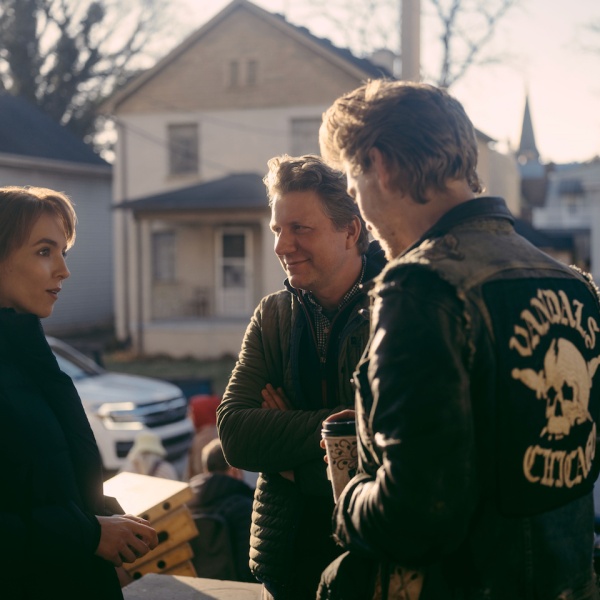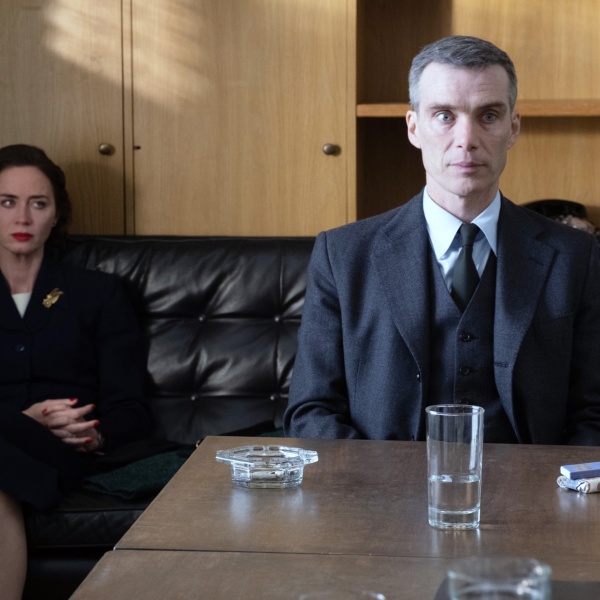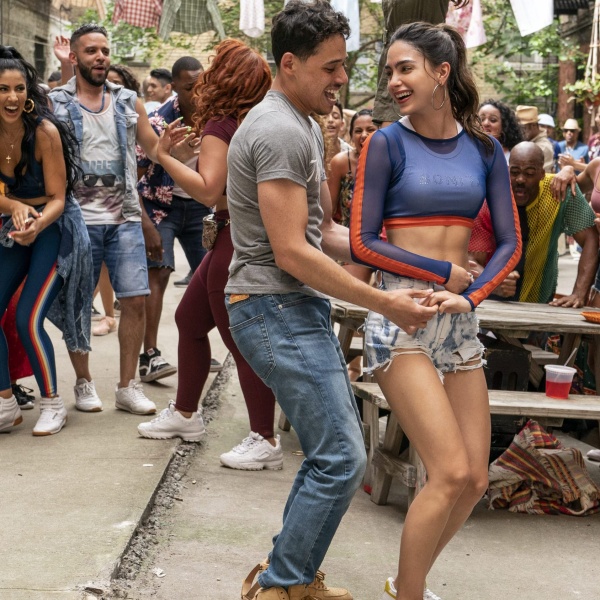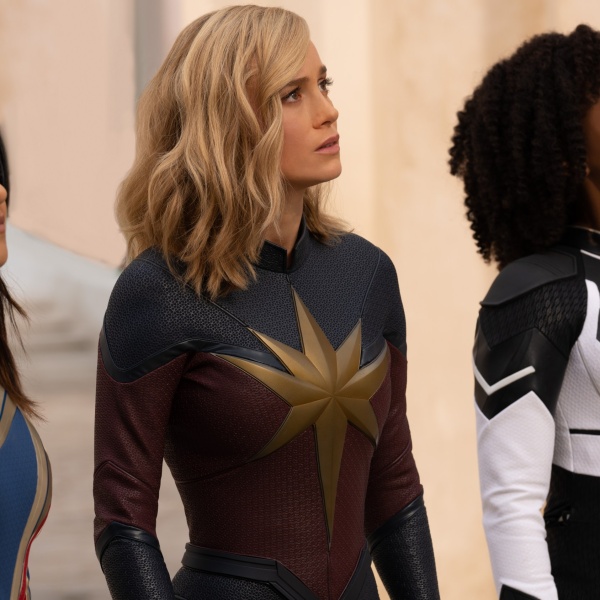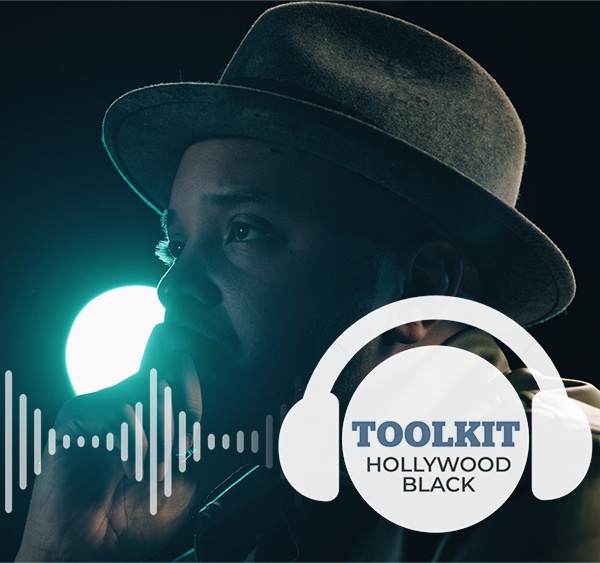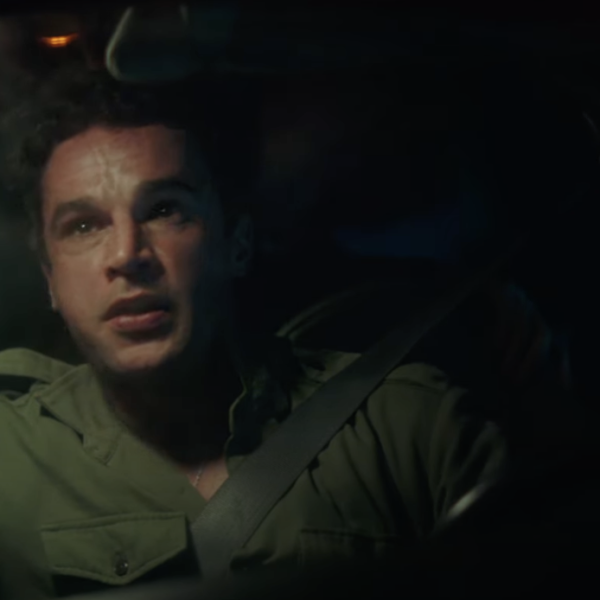Filmmaker Talks Distrib Who Bailed On ‘Leaves’ & The Mad Genius Of Kaye’s ‘Detachment’

One of the best films of the year is Tim Blake Nelson’s “Leaves of Grass,” now available on DVD. You may not be familiar with the picture, however — yanked from the schedule plenty of times, it completed a small theatrical run in September, the kind of treatment given to disappointing low-fi indies or schlock genre fare.
But “Leaves” is a different breed, an ambitious, comic drama about an uptight college professor and his rural pot-slinging brother who find their philosophies clash amidst family turmoil and criminal bloodshed. We’re confident to say there’s been nothing quite like it on the schedule this year. We sat down with Mr. Nelson to discuss his inspirations for the film and what he may be planning on next.
What are the origins of the story in “Leaves of Grass“?
The movie is about a guy who feels like he has life figured out. He feels like he has control over his own life, who nevertheless gets sideswiped by events and forces that are beyond his control. That had kind of happened to me professionally, I had a film fall apart on me in pre-production. I went home to try to deal with the wreckage of that, a movie called “Seasons of Dust.” And I was kinda inspired by that experience to write about a guy who thought everything was going right and suddenly was just upended.
At the same time it draws from a lot of my own biographical experiences. I grew up in Oklahoma and went east to college, and I tried to find a balance between a background that differed, on paper, from the trajectory my life was taking. I wanted “Leaves of Grass” to explore not the harmony that I was trying to achieve, but the disharmony and counterpoint that might emerge from juxtaposing different worlds.
Was it difficult courting Edward Norton for the lead roles?
I met Edward for another movie I wanted him to do with me. And he was so gracious in declining to do that movie that this thoughtful well-spoken, truly intriguing person stayed in my head. When I was writing the movie, I was imagining Edward’s voice in the role that was motivating my approach to creating the characters of Bill and Brady. When it was ready, I gave [the script] to him. He initially resisted, because these indie films are hard to set up and difficult to get released. It takes a lot of temerity on the part of an actor, and maybe hubris, to go in and do one if you’re a star like Edward is. Because you’re essentially risking some of your capital; if the film doesn’t work, you become associated with a film that didn’t work, which is never good for an actor to do. Edward just wasn’t in a place where he wanted to do an indie he wasn’t going to direct or write. I persisted and kinda hounded him a bit, and after six weeks he read it and signed on immediately, and we went out and produced the movie together.
Can you talk about Edward Norton’s colorful reputation as a creative collaborator?
Edward was the producer, so I would say that behind the scenes, Edward was quite instrumental in making sure I got what I needed as a director as far as schedule and resources and personnel. As an actor, Edward is a very aggressively creative guy with a lot of strong opinions. As a director, you can either embrace it or be threatened by it. I think with somebody as smart as Edward, that energy has to be embraced. The clearest example of a gain is that Edward really saw Brady, and this is sort of silly, with long hair. I hadn’t seen Brady with long hair because I thought it would stretch credibility in terms of people mistaking Bill for Brady, if they were too different looking. But Edward really stuck with this notion of wanting Brady to have long hair, and so we found our way around that with hats – Bill wears a hat when he first gets mistaken for Brady. Ultimately, the movie gained from that input, it became more interestingly outlandish.
How did you balance the broad comedy versus the philosophical moments of the film?
The bandwidth of “Leaves of Grass,” as far as what it permits itself to find funny is pretty wide to begin with. That’s something we always wanted. But I don’t subscribe to the notion that movies need to fit in within narrow genres. Sometimes they can and should if you’re making a genre movie. But life itself isn’t a genre, it’s funny, sad, unpredictable all at once. I think when we were setting out to make the movie that addressed a notion as broad as what it is to lead a healthy life, we were going to allow the movie to move across what you’d call different genres. And so within scenes that sometimes means that you’ll have a joke about Heidegger or theoretic philosophy with two characters arguing about the first time they smoked pot, and a few scenes before, they’re talking about one of them getting a blowjob.
I guess we wanted the movie, thematically and tonally, to cross a great deal of ground, and not to confine itself merely to be a pot comedy, or a thriller, or a bunch of philosophical conversations between smart people. That gave us free reign to address a lot of ideas in the movie. Every character has a pretty distinctive approach as to how life should be lived. You’ve got [Richard Dreyfuss’ character] a rabbi talking about how life is about repairing the world. Bill believes life is about structure and control and a balance against destructive outside forced. Brady is this classical hedonist who wants to grow the purest pot but embraces life as something that is improvisatory and dangerous and sometimes violent. You have [Susan Sarandon’s character] Daisy who’s decided that the only way for her to lead a decent and happy life is to go and hide from her disappointments. With that in mind, you have to have characters in scenes expressing ideas, some of which make sense, some of which are outlandish. Ideally, we have a movie where there’s a lot of philosophy and it comes out in a natural way, so an audience member doesn’t feel preached at. But you’re watching characters with different outlooks on life struggle with one another’s ideas.
Did you always want the same actor to play the twins?
I always wanted one actor because I think that’s part of the game, the delight in watching an actor pull off these disparate performances in a single movie. And also seeing one actor play divergent characters is a very legible metaphor for how you can choose different lives for yourself. I think that can really drive a point home for audiences in a way that is very entertaining about the choices we have in life.
Did you look at other twin movies for research?
We looked at pretty much every twin movie to look at. What we wanted to do was to push what’s gonna happen as technically hard as possible. The goal being of course to be so profligate with twin shots that the audience at a certain point forgets that its one actor playing those roles, and becomes convinced, on a subconscious level, that its not the same actor.
The movie was yanked around on the schedule. What happened?
Initially, Avi Lerner, who financed the movie, was going to release the film himself. Then we had a very successful turn at SXSW, and there was fervent interest from a buyer to take the movie from Avi and give it a wider release than Avi was planning. So an agreement was made on a handshake, but then that buyer fell through. Then Avi decided he would release it again, and ultimately that happened this fall. That time in the summer when it was pulled from theaters right before release was because of that handshake. That person just flaked out, that’s the honest truth.
In “Leaves of Grass” you had yourself, Norton and Ty Burrell, all of you in “The Incredible Hulk” previously. Did the project form on the set of that film?
Well, we cast Ty during preproduction, even though we both knew Ty, Edward and Ty are very good friends. He only came on just before shooting, because I was flummoxed as to who would play that role, and couldn’t find anyone who was suitable and could accomplish that sort of patrician feel to also get the comic rhythms of that scene.
As far as Edward and I on the “Hulk,” we took the roles knowing we were both going to do “Leaves of Grass” next, and it was delightful to be able to act with Edward, and then go and direct him in a role written for him. It made “Hulk” and “Leaves of Grass” both better experiences. You learn a lot about somebody when you act with them. Most of all, it allowed me as a director to understand the rhythms of Edward’s day as an actor, how he likes to be treated on set, the environment he can most excel. That experience was invaluable.
You famously begin to mutate at the close of “The Incredible Hulk,” suggesting your character Samuel Sterns aka The Leader would return. Are you signed with Marvel for future films?
I am, but it’s a question as to whether they’ll make more movies, which was the intention, or whether they’ll take a fresh start with the villains, since they switched Bruce Banner to Mark Ruffalo. I certainly very much want to return as the Leader and I hope they’ll have me. The intention was that I would come back, which is why my head starts to, um, bubble, at the end. It’s just a question as to whether a) they’re going to make more Hulk movies, and b) because of Ruffalo, if they’re going to use me again.
What can you tell us about a film you‘ve taken an acting part in called “Detachment“?
I’m so glad you asked about that! I loved, without reservation, working with Tony Kaye. I can also say that by far, it is the most eccentric experience I’ve ever had as an actor working on a movie set. I think that Kaye’s taking some wild chances, narratively and aesthetically, with the movie. It’s derived from a gorgeous script that’s frightening and heartbreaking. It was written by this guy named Carl Lund, who spent years as a teacher in the trenches of the LA public school system. It is an unflinching and brutal look at a public school and the dysfunction within. I play a teacher who’s just going off the deep end.
The look of the movie is going to be… Tony Kaye, again, is one of the most eccentric people I’ve ever met. And yet at the same time, I found myself, particularly Adrien Brody and I, found ourselves doing whatever he asked, whenever he asked, without delay, without ever questioning it. He combines this madman’s approach to filmmaking with an ability to make you believe in him, that’s almost messianic while it’s occurring. You just kinda go with it. I’m talking about scenes shot without any rehearsal whatsoever, even for the crew. The smallest lighting package I’ve ever encountered on even a student film, let alone a film with Academy Award winners, like Adrien and Marcia Gay Harden, and you also had James Caan, Blythe Danner.
Tiny crew, tiny lighting package, and Tony operating the camera, manually pulling focus, as if he’s shooting you with an FLV rather than an Arriflex. Handing you pages of dialogue, sometimes, two and three page speeches, just before shooting. A really eccentric, unpredictable process. I’ve rarely looked forward to going to work as much as I have here, and I have great optimism for what the movie is going to be. No matter what the exposure is for the movie, I know it will be fascinating, incredibly compelling., I think that people like Tony Kaye, who resolutely have their own approach to doing things, who dispense with orthodoxies, are the people for whom I most want to work, who I want to be around. In a way, the Coen Brothers are another version of this.
Do you have any future scripts you might be directing? And are you apprehensive about going through another process where your films struggle with distribution like with “Leaves of Grass“ or “O”?
I have a new script that I’ve written, it’s just a question as to when I have an opening to make it. It’s sort of a larger fantasy-type film. It’s based on a story I made up to tell my children – I have three boys. I’ve also started writing something smaller, I’m not sure if it will end up being a movie or not. I’m also working on a script that has to do with a nineteenth century prison. It’s just a question as to when the schedule will open up to make a new movie, and I hope that will happen in the next few years.
